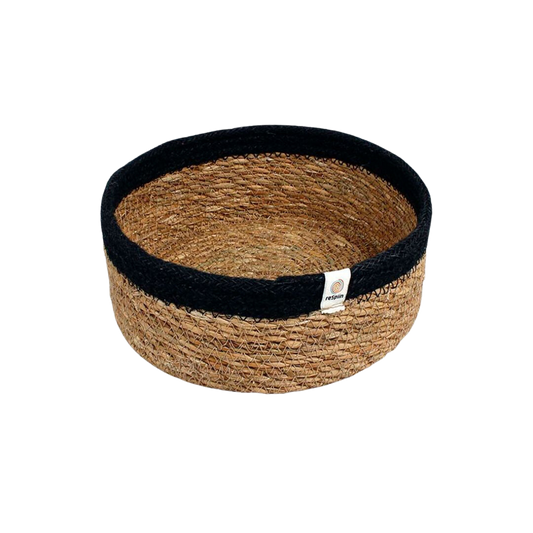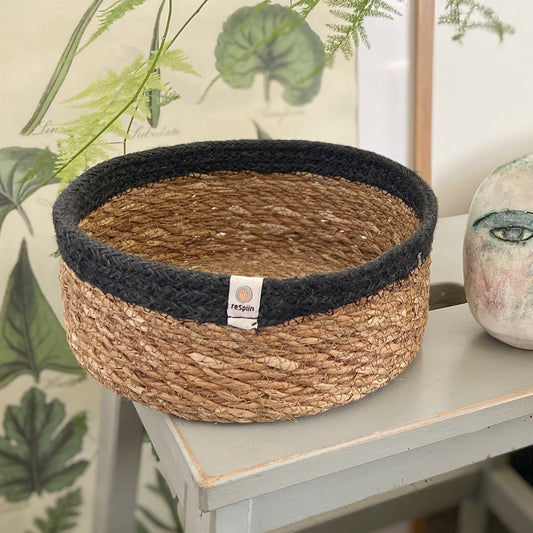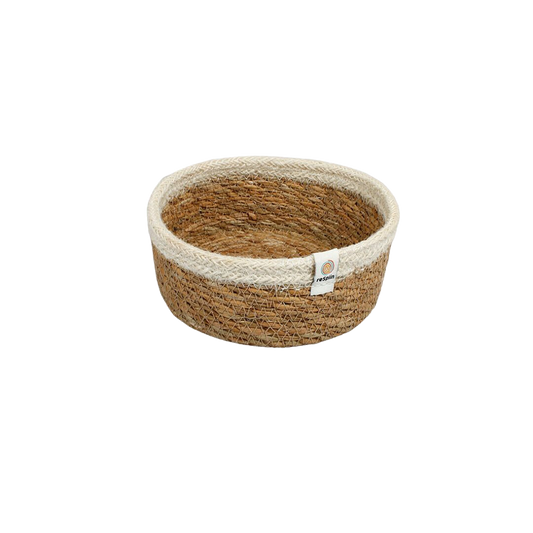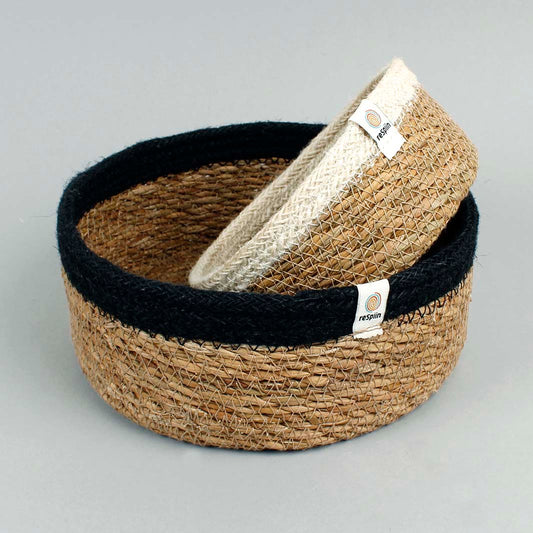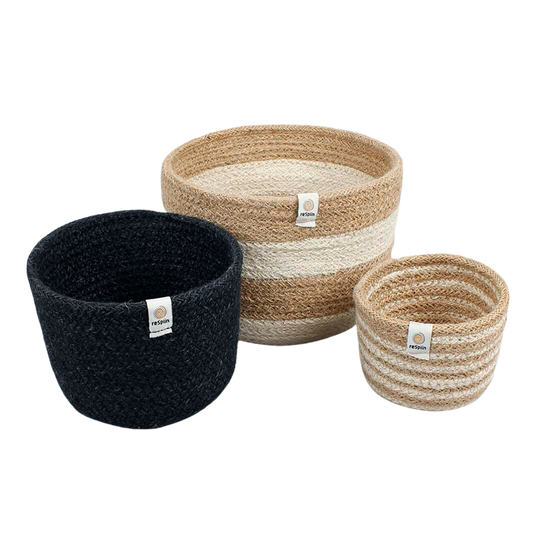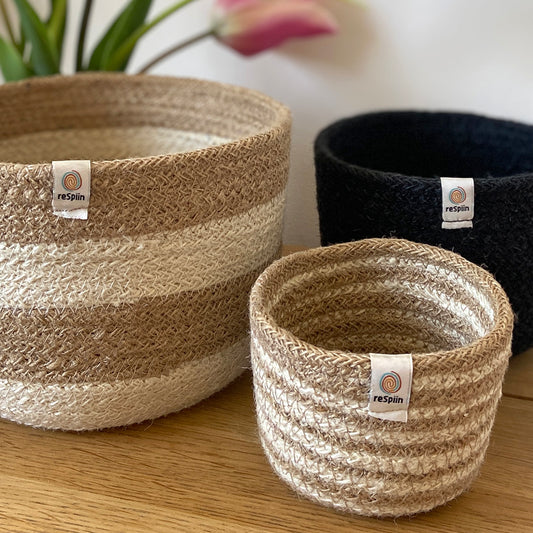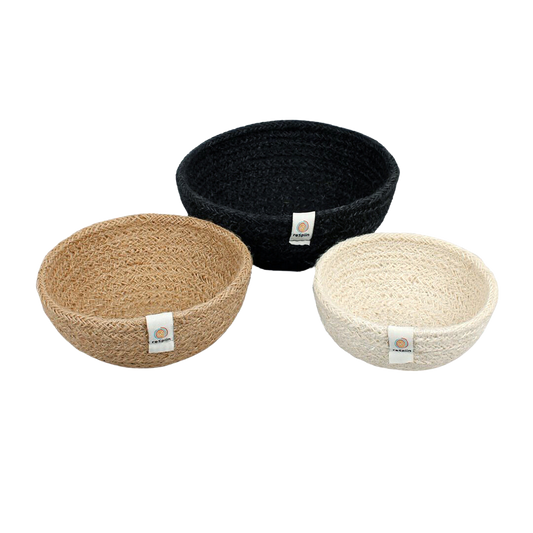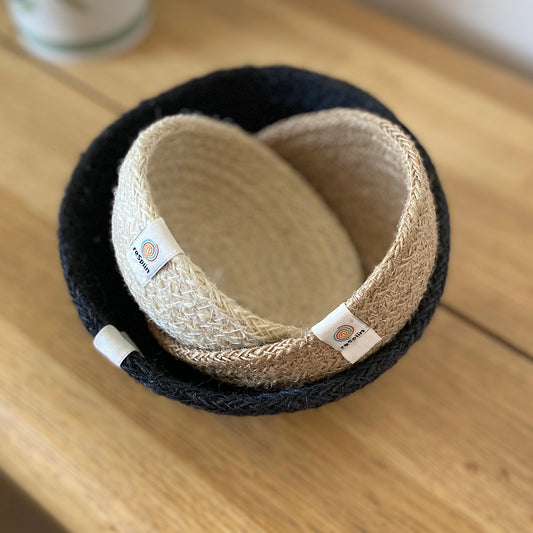
What is Jute?
Jute is an incredibly fast growing fibrous plant, it takes just 3 months to grow to 15 feet! It doesn’t need to be treated with any chemical pesticides or fertilisers, grows much quicker than crops such as cotton, and can also be grown using natural rainfall rather than expensive and unsustainable irrigation systems.
How is Jute Made?
During harvest the jute fibres are cut and bundled and the inner stem and outer fibres get separated. Once dry the outer fibres are taken to the jute mills to be woven into jute yarn.
Our jute baskets are made by weaving jute yarn around the raw inner jute stem - making a chunky and durable jute rope. We then coil this jute rope into our wonderful baskets, sewing the rope in place using sewing machines.
We’ve included coloured jute rope in our baskets too - all dyes used are of course azo free.



Why is Jute a Sustainable Material?
-
Low Environmental Impact
Jute can be recycled, will biodegrade in 1 to 2 years, and can even be composted.
-
Absorbs Carbon Dioxide
Jute absorbs Carbon Dioxide and releases Oxygen at a much faster rate than trees.
-
Elevating Jute
Our baskets make the very best of this wonderful and sustainable material - why make a simple jute sack when you can make a beautiful jute basket!
Shop our Jute Collection
-
MEDIUM Shallow Woven Seagrass + Jute Basket - NATURAL/BLACK
Regular price £8.00Regular priceUnit price / per -
SMALL Shallow Woven Seagrass + Jute Basket - NATURAL/WHITE
Regular price £7.00Regular priceUnit price / per -
TALL Woven Jute Basket Set of 3 - PEBBLE
Regular price £20.00Regular priceUnit price / per -
MINI Woven Jute Bowl Set of 3 - PEBBLE
Regular price £14.00Regular priceUnit price / per
More materials
-
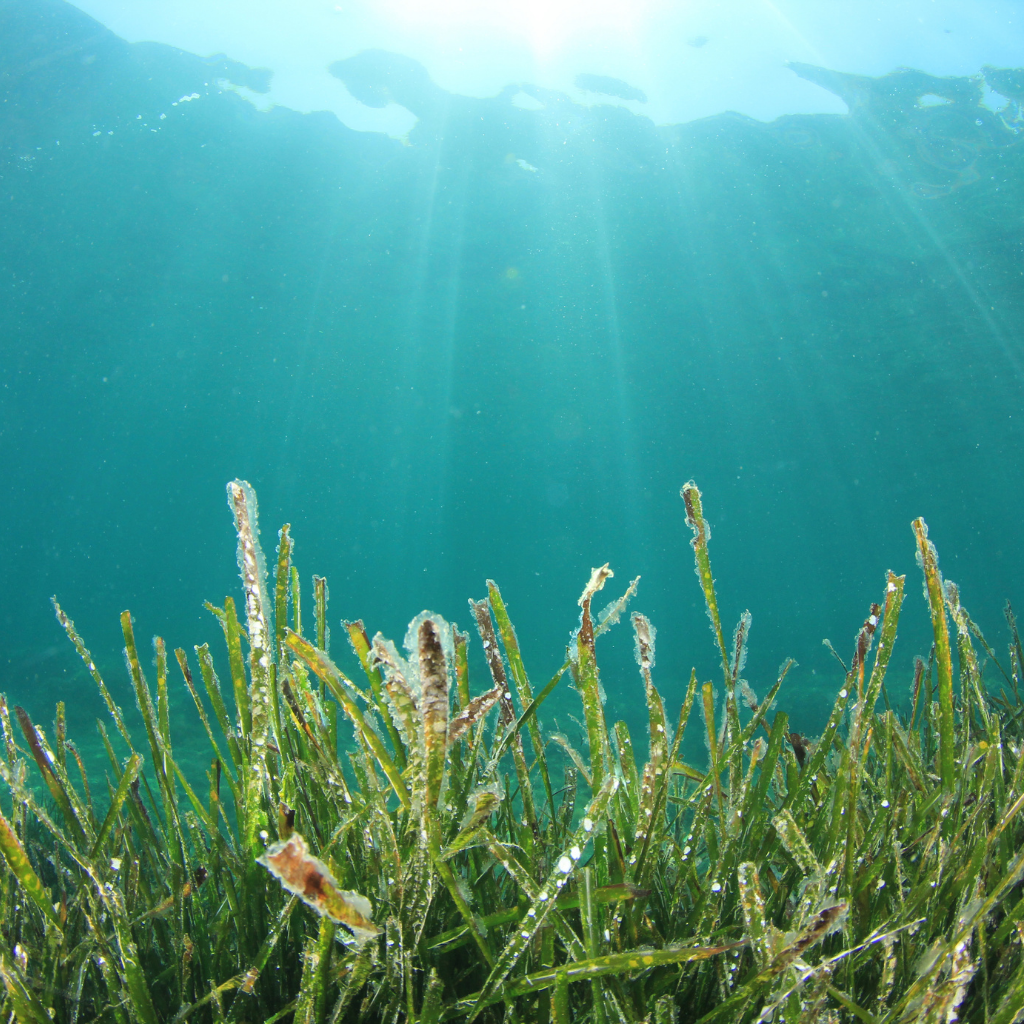
Seagrass
Seagrasses grow very quickly in shallow saltwater along coastlines and rivers. Once mature the grasses are cut by hand and dried in the sun, then hand twisted and woven. The dried seagrass is durable and moisture-resistant. Learn more
-
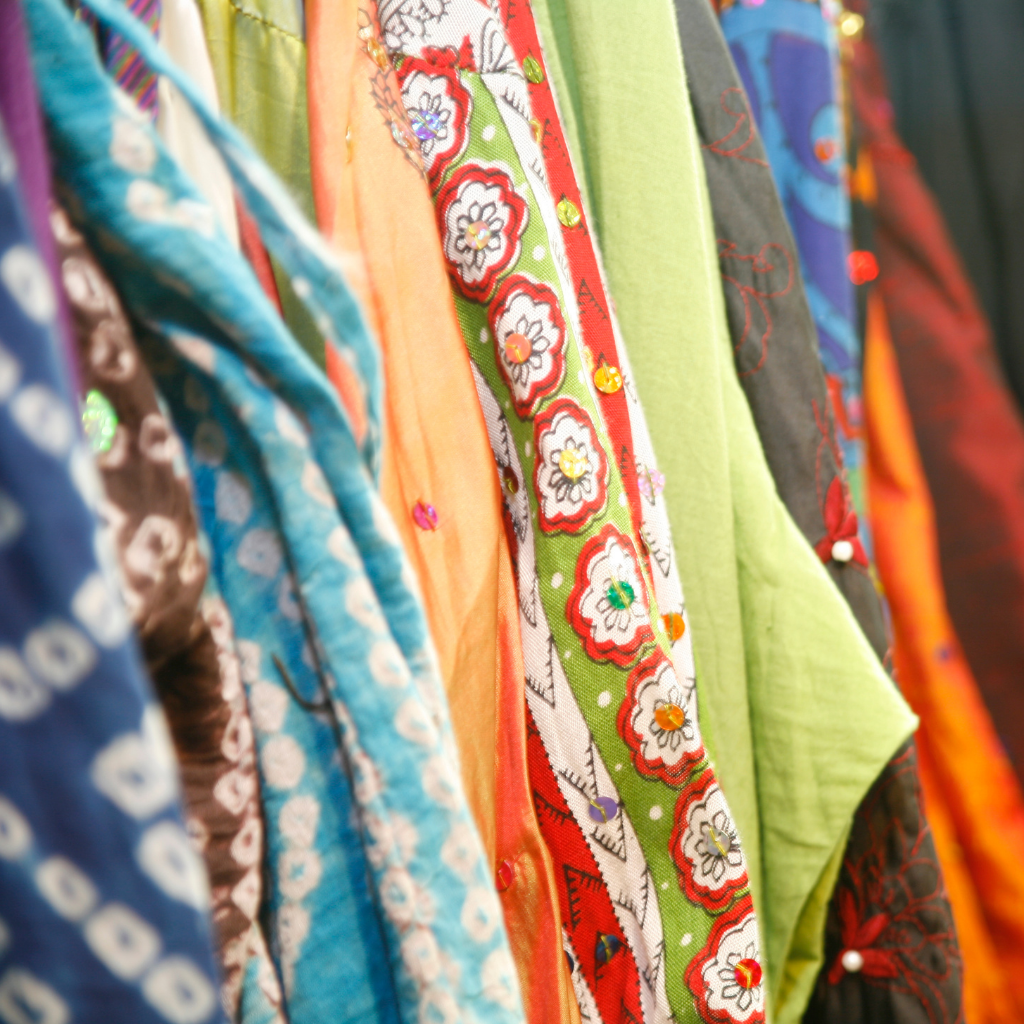
Saris
Old saris are sold by households to pedlars, who sell the saris onto companies who usually recycle them. Instead we reuse the saris, weaving them together with sustainable seagrass to make a beautiful, one of a kind basket. Learn more
-
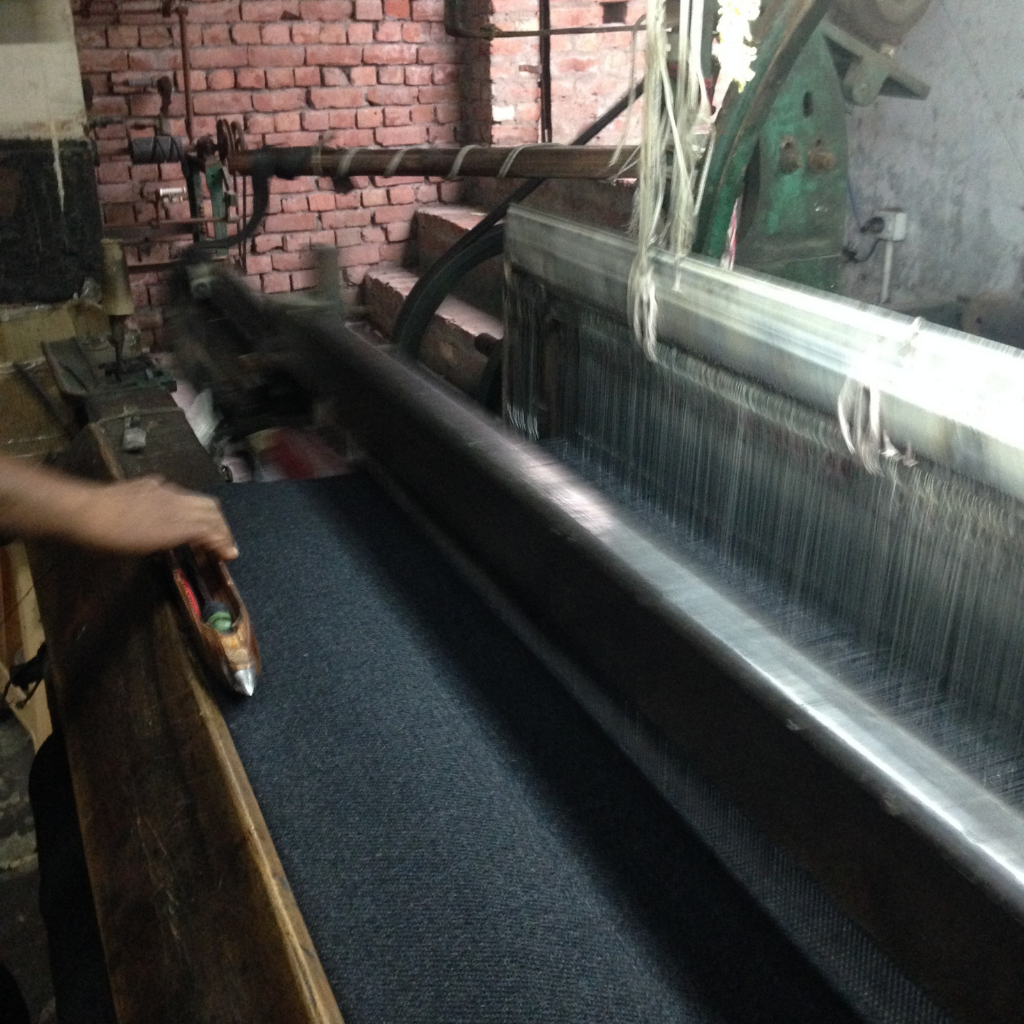
Recycled Wool
Used wool fabrics are collected in recycling banks around the world. In India they are sorted into colour, broken down into fibres, spun into yarn and then woven into fabric. Learn more

